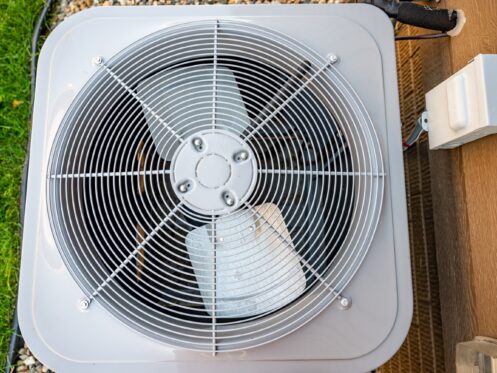Having the right size HVAC system is essential for creating a comfortable home. Too big and you’ll waste energy; too small and the system will struggle to keep your living space at an appropriate temperature throughout the year. With so many factors that go into choosing the right size HVAC system for your home, this important decision can seem daunting. Below is a guide about how to choose the best size HVAC system for your home.
1. Determine the Size of Your Home
This is crucial, as it will directly affect the heating or cooling power your system will need to deliver to keep your home comfortable. Factors like the square footage of your home, the number of rooms and stories, and even the layout of your space can all play a role in determining what size system is right for you.
When measuring your home, it’s important to include unfinished levels, such as basements or attics. Ignoring these important details can lead to an HVAC system that is either overpowered, resulting in wasted energy and a high monthly bill, or underpowered, which will cause your system to struggle to keep up with the demand. Both of these can lead to uncomfortable living conditions. An HVAC contractor like George’s Air Conditioning can help residents of Galveston, TX and the neighboring areas to determine the precise size of their home and other important factors in choosing an HVAC system.
2. Consider the Number of Windows in Your Home
The number and size of windows in your home will affect how much heat is lost during the colder months and gained during the warmer months. This is particularly true if your windows are older or single-paned, as these types of windows don’t hold up well against changing temperatures.
If you have a lot of windows, you may need to invest in an HVAC system that is more powerful than would otherwise be necessary for your home’s size. Similarly, if you have newer energy-efficient windows or special window treatments like blinds that can keep out additional sunlight, you may not need as powerful a system as someone with older, less energy-efficient windows.
3. The Amount of Insulation in Your Home
How much insulation is in your home’s walls, floor, and attic can also significantly affect how much energy your HVAC system needs to expend. Insulation acts as a barrier, protecting the interior of your home from extreme temperatures and keeping it more comfortable with less effort from your heating and cooling system. If you have insufficient insulation, then you will likely need to invest in an HVAC system that is more powerful than necessary if you have proper insulation installed.
If you do not have enough insulation, you can use blown-in insulation or another type of insulation to fill cavities and improve the energy efficiency of your home. Lastly, consider having a professional HVAC technician inspect your home’s insulation levels.
4. Your Location and Climate
Different regions of the world experience varying temperatures and weather patterns, which can greatly impact the efficiency and functionality of your heating and cooling system. For example, areas with extreme heat or cold may require larger systems to adequately regulate the indoor temperature.
On the other hand, areas with more moderate climates may only need smaller systems. Additionally, the location of your home can also play a role in determining the best HVAC system size. For instance, if you live in a high-altitude area, you may require a larger system due to the thin air and lower oxygen levels.
5. The Number of People Living in Your Home
The number of people living in your home can affect the indoor temperature, as body heat and activity levels contribute to a warmer environment. This means larger households may require a more powerful HVAC system than smaller households.
It is also important to consider the size of each individual in your home, as bigger bodies generate more heat than smaller ones. If taller and bigger people live in your home, you will likely need an HVAC system capable of cooling or heating your space faster and more efficiently with its increased power output. However, utilize the help of a professional to avoid over-sizing or under-sizing your system.
Choosing the best size HVAC system for your home is a complex decision that depends on many factors. By taking into account the size of your home, the number and type of windows, insulation levels, climate, and occupant size, you can accurately determine which HVAC system will best suit your living space. However, it is highly recommended to consult a professional to ensure you make the best choice for your unique home and situation.
Contact George’s Air Conditioning for services in heating, cooling, indoor air quality, and ductless systems, among others. Our team of experienced technicians can provide expert advice and assistance in any of our services to meet your individual needs.



